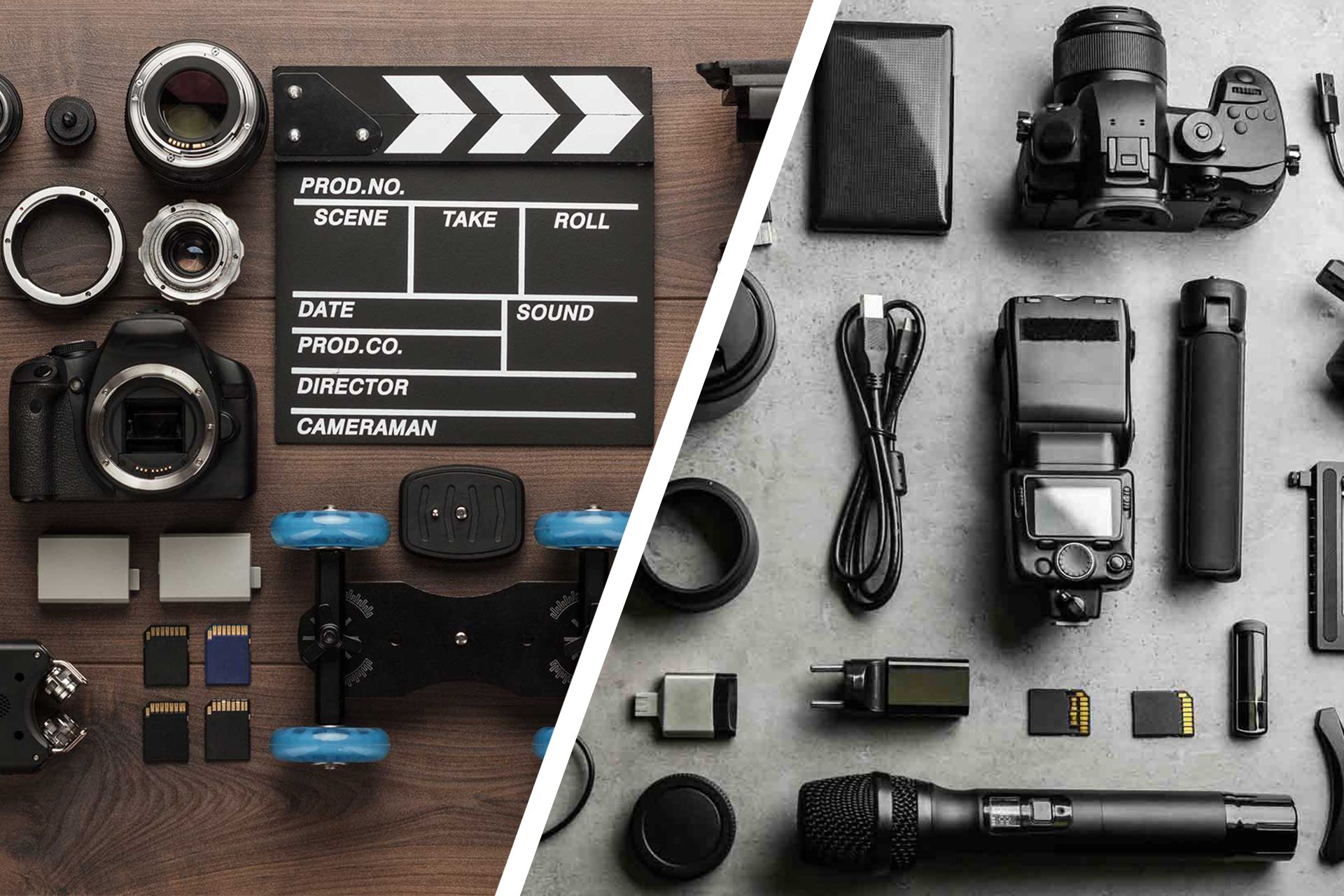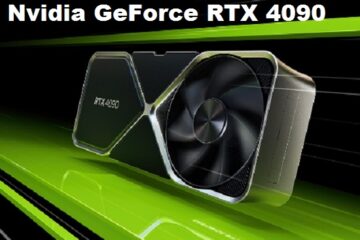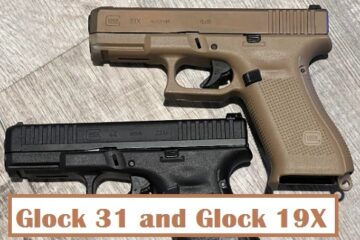Lights, camera, action! Are you planning a filming project but unsure of what equipment to use? The quality of your footage matters and having the right gear can make all the difference. In this blog post, we will explore the cutting-edge equipment that every filmmaker needs for their next big project. From cameras to tripods, microphones to lighting, and video editing software – we’ve got you covered! So grab some popcorn and get ready to take notes on how you can elevate your filming game with these must-have tools.
Table of Contents
Camera
When it comes to filming projects, the camera is undoubtedly one of the most important pieces of equipment. The right camera can make all the difference in capturing stunning footage that captivates your audience.
There are several types of cameras on the market today, ranging from basic point-and-shoot models to professional-grade DSLRs and mirrorless options. The type of camera you choose will depend on your specific needs and budget.
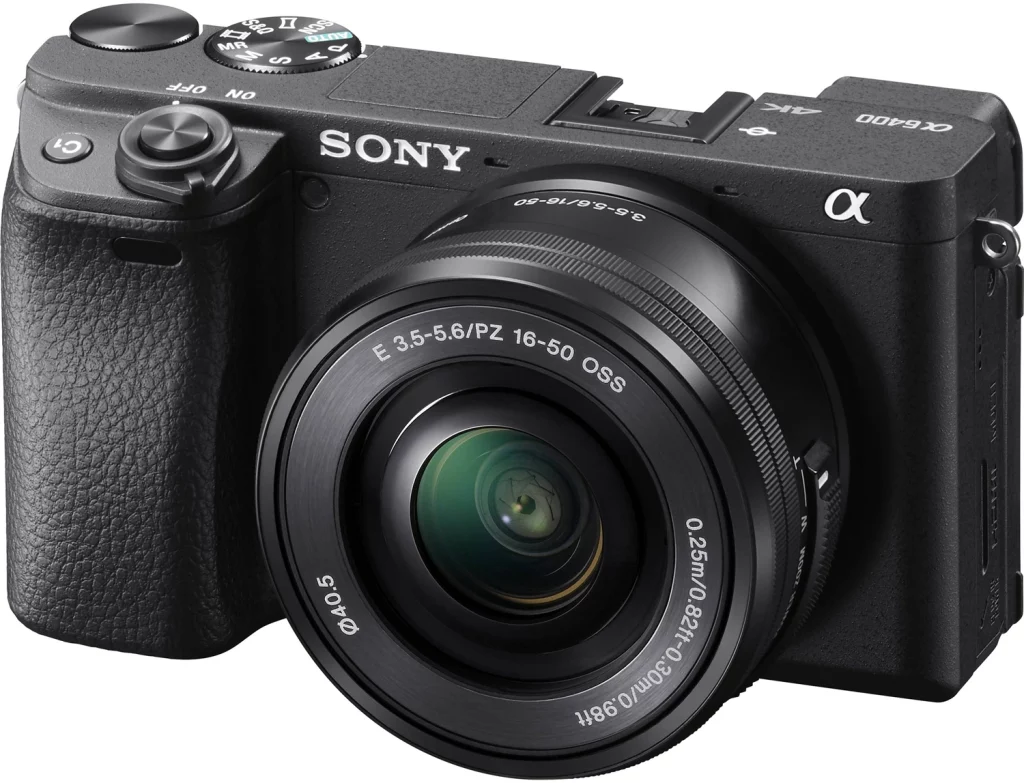
A good rule of thumb when selecting a camera for your filming project is to consider factors such as image quality, sensor size, lens compatibility, and shooting modes. If you plan on filming action-packed scenes or sports events, a camera with high frame rates and fast autofocus capabilities may be ideal.
It’s also worth considering whether you’ll need additional accessories such as external microphones or stabilizers for smoother footage. Ultimately, investing in a quality camera can take your filming project from amateur to pro-level in no time!
Tripod
A tripod is an essential piece of equipment for any filming project. It provides stability and helps you capture steady shots, which are crucial to creating professional-looking videos.
When choosing a tripod, consider the weight of your camera and accessories as well as the maximum load capacity of the tripod. You want to ensure that it can support your setup without tipping over or collapsing.
Another important factor is the height range of the tripod. Make sure it can extend high enough for your needs but also collapse down small enough for easy transport.
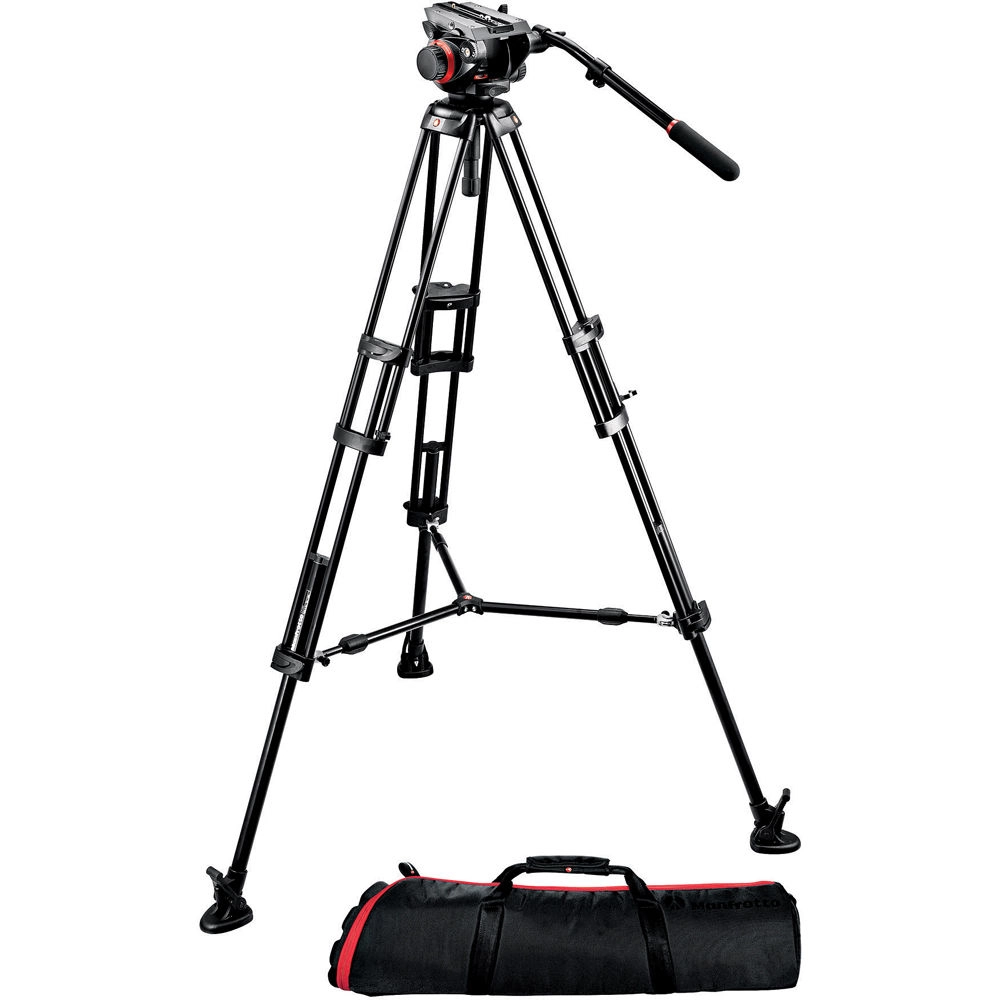
There are various types of tripods available on the market including lightweight travel tripods, heavy-duty studio tripods, and compact tabletop tripods. Decide what type will fit best with your filming style and needs.
When using a tripod, be sure to use a remote shutter release or self-timer function on your camera to avoid shaking when pressing down on the shutter button manually.
Investing in a good quality tripod may seem like an extra expense but its benefits are worth it in terms of image stabilization and overall video production value.
Microphone
When it comes to filming projects, sound quality is just as important as visual quality. This is where having a good microphone becomes crucial.
A high-quality microphone can pick up even the faintest of sounds, ensuring that your audio is clear and crisp. There are several types of microphones available for different purposes, such as shotgun mics for directional recording or lapel mics for hands-free recording.
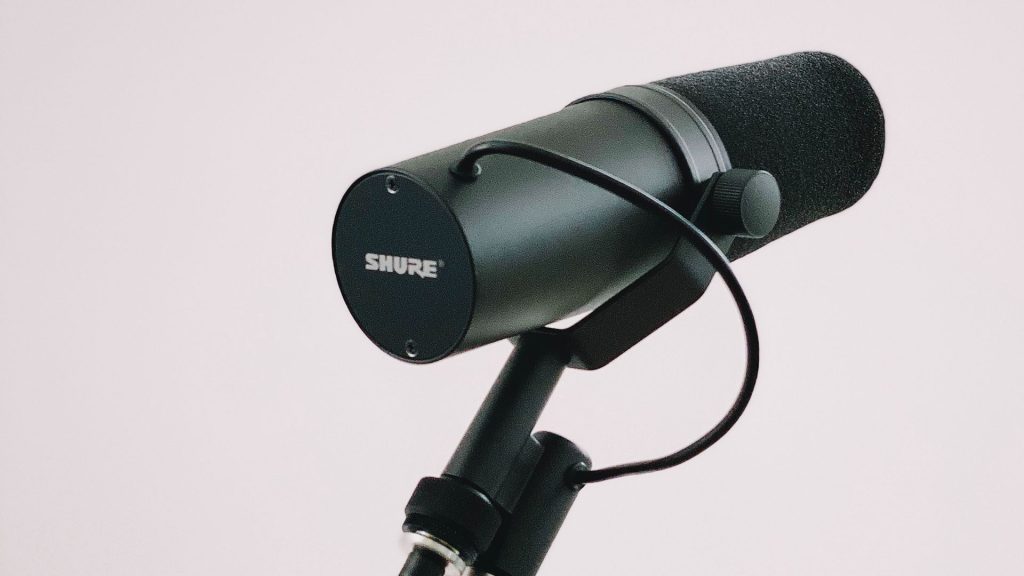
When choosing a microphone for your filming project, consider factors such as the environment you’ll be filming in and the type of dialogue or sounds you need to capture. It’s also important to invest in a windscreen or pop filter to prevent unwanted background noise and improve clarity.
In addition to selecting the right type of microphone, proper placement is key. Positioning the mic close to the subject’s mouth or source of sound can greatly enhance audio quality.
Investing in a good quality microphone can make all the difference in taking your filming project from amateur to professional-level production.
Lighting
Lighting is one of the most critical aspects of any filming project. Without proper lighting, your footage might look dull and unprofessional. Good lighting can make all the difference in creating a cinematic feel to your visuals.
There are different types of lights available for filmmaking that you could use depending on your budget and requirements. Some popular options include tungsten, fluorescent, LED and HMI lights.
Tungsten lights are affordable but generate heat which makes them less efficient for extended shoots. Fluorescent lights do not create too much heat; however, they may produce greenish hues that need color correction in post-production.
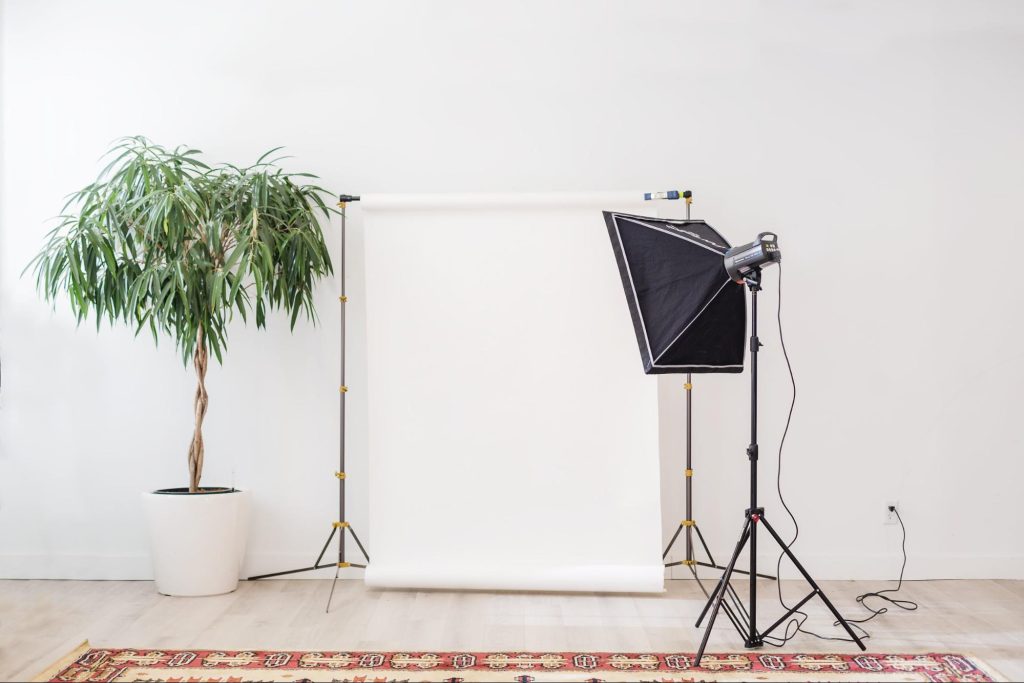
LEDs have become increasingly popular among filmmakers because they consume less power and generate little to no heat while providing clean light output. They also come with varying levels of brightness control making it easier to adjust according to the desired atmosphere.
HMI Lights provide daylight-balanced illumination that creates a bright white light ideal for outdoor shooting or simulating sunlight inside studios.
Lighting plays an important role in setting up the mood in your films as well as drawing attention towards specific elements within the frame. By choosing appropriate lighting equipment based on your project’s needs, you can elevate its production value significantly!
Video Editing Software
When it comes to filming projects, video editing software is an essential tool for bringing all of your footage together into a cohesive and polished final product. With so many options on the market, it can be overwhelming to choose the right one for your needs.
One popular choice among professionals and beginners alike is Adobe Premiere Pro. This comprehensive software offers a wide range of features such as color correction, audio editing, and advanced effects. Its user-friendly interface also makes it easy to navigate through different timelines and clips.
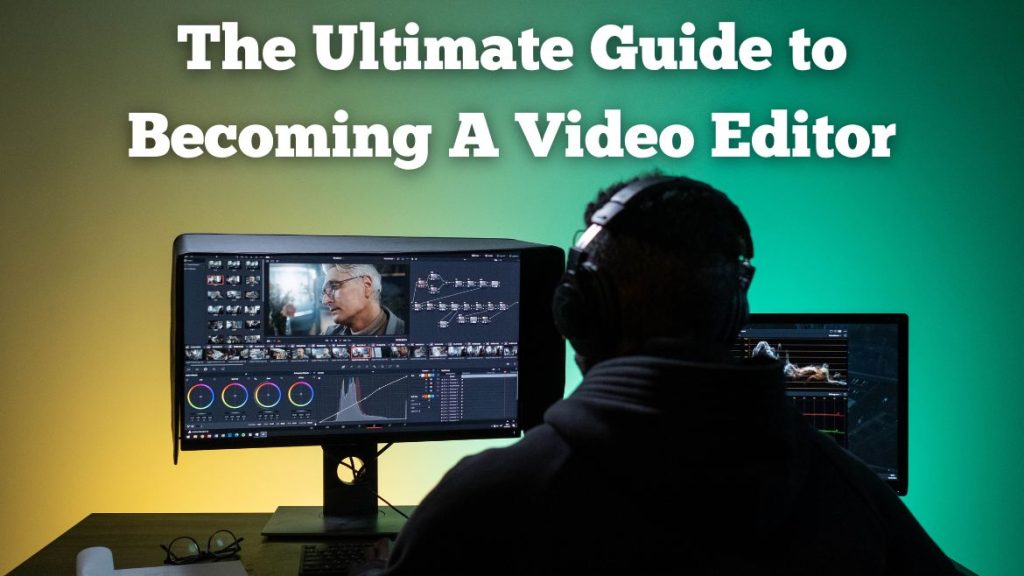
For those on a budget or just starting out, there are free options available such as iMovie for Mac users or DaVinci Resolve which offers professional-level capabilities at no cost.
Another consideration when choosing video editing software is compatibility with other programs you may be using in your workflow. For example, if you’re working with footage shot on a GoPro camera, their free Quik desktop app has built-in templates specifically tailored for that type of footage.
Ultimately, the best video editing software for your project will depend on factors such as budget and personal preferences. Be sure to do research beforehand and even try out demos before committing to make sure it’s the right fit for you!
Conclusion
To sum up, having the right equipment is crucial for any filming project, whether you’re a professional filmmaker or just starting out. Investing in high-quality cameras, tripods, microphones, lighting and video editing software can make all the difference in producing a successful project.
Remember that each piece of equipment serves its own purpose and will contribute to improving your final product. Don’t overlook any aspect of production as it could make or break the overall success of your filming project.
Keep in mind that while having top-notch gear is important, it’s equally imperative to have creativity and passion for what you do. With dedication and hard work combined with cutting-edge equipment, you’ll be on your way to making amazing films that captivate audiences everywhere!
Also read about sms app
